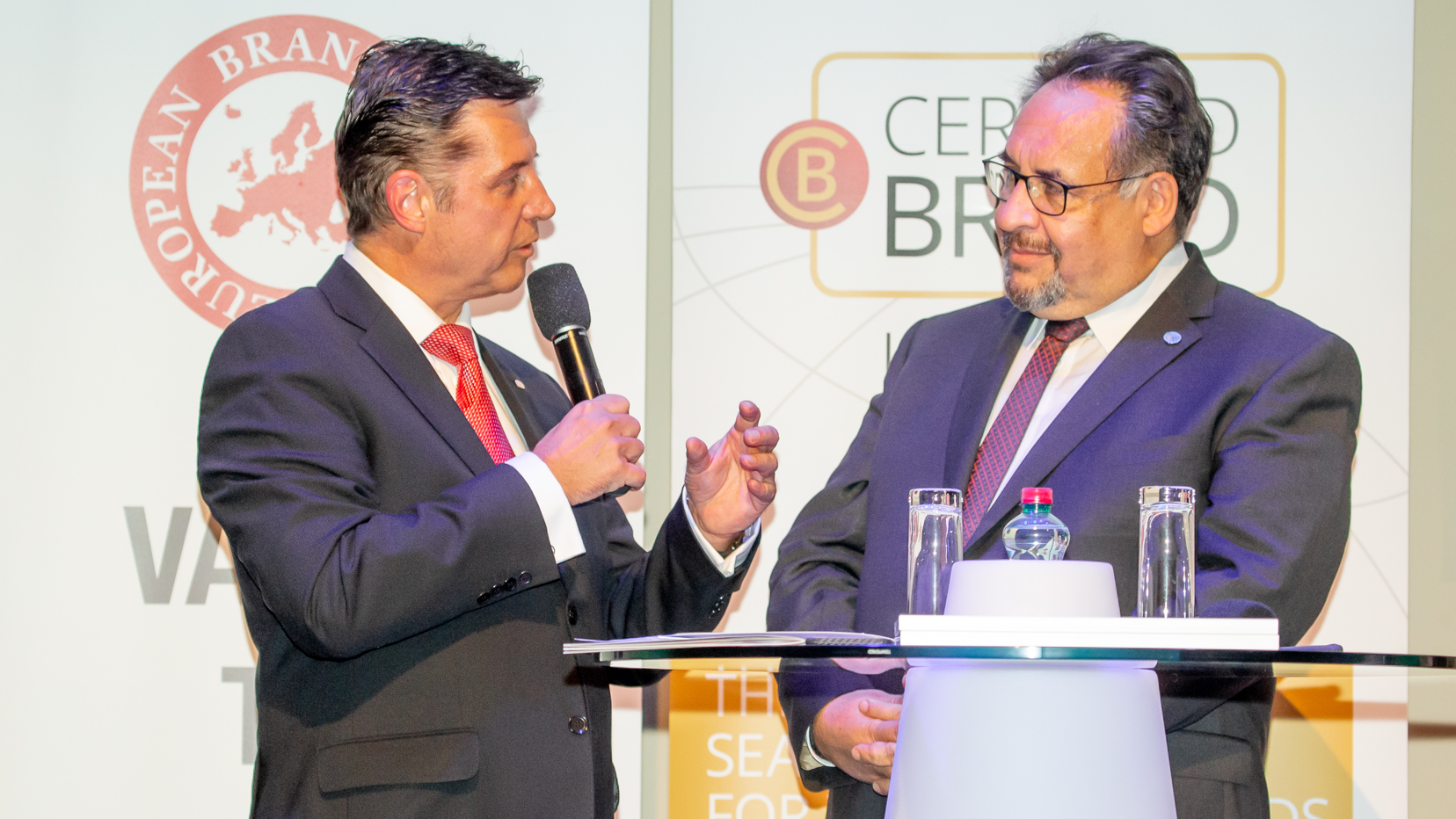

How brands ensure business resilience to external shocks in an increasingly digitalized world
19 June 2020 UNIDO

With the COVID-19 pandemic driving an unprecedented downturn in business activity, many companies are being pushed to question and reinvent their modus operandi, and are increasingly focusing on approaches and tools associated with innovation, agility and distinctiveness.
In the transition from the defensive phase of the COVID-19 crisis to the post-crisis growth phase, one of the defining recovery dynamics will be associated with intangible assets, especially brands. Brands are increasingly recognized as one of the key driving forces creating additional economic value and sustainability in an increasingly digital economy.
In a report issued in 2019 by the United Nations Conference on Trade and Development (UNCTAD), it is estimated that the digital economy represents around 22.5% of world GDP. Although reliable statistics on its key components and dimensions are lacking, especially in developing countries, there is no doubt that digital revolution has dramatically transformed our lives and societies, delivering immense opportunities, as well as daunting challenges.
From a business perspective, digitalization has ushered in a new era of competition. It also has a vast impact on customer behaviour: most customer decisions are based on initially experiencing a company or a brand in the digital space.
In order not to lose ground to more “digitally present” competitors, small and medium enterprises (SMEs) should grasp the importance of digital solutions that allow to build up visibility and credibility in the digital marketplace, with the aim of ensuring a solid customer loyalty base. By embracing this digital transformation, companies can stay a step ahead of the competition and lay some very important groundwork for dealing with external pressures, owing to a greater market potential and more direct access to customers through strategically planned on-line presence.
Characterized by intense competition, digital ecosystems foster creativity and innovation leading to the creation of new products and sometimes even the emergence of new industries usually accompanied by employment opportunities and income growth. Digitalization fosters the production of higher- quality goods and services at reduced costs. It can thus help improve many economic and social outcomes, and be a force for addressing development issues, including those related to the Sustainable Development Goals (SDGs).

Note: According to estimates by the European Brand Institute, brands can deliver long-term superior returns, reduce downside risk, are less volatile, and generally perform better on the stock market, especially in the times of crisis. Companies with strong digitally present brands have loyal customer bases and high recurring sales. They are underpinned by high-performance, difficult-to-replicate intangible assets, which makes them a good choice for long-term investors who seek to get the best possible returns.
So, why are brands considered to be a fail-safe tool helping to build external shock resilience and contributing to well-paced growth in the era of digitalization?
Bernardo Calzadilla-Sarmiento, Managing Director, Directorate of Digitalization, Technology and Agribusiness at the United Nations Industrial Development Organization (UNIDO), says “Whether a country can reap the benefits offered by the era of digitalization, while pursuing a development path aligned with the SDGs, depends on a wide array of factors. In this context, global consumers’ demand for quality and responsible brands is becoming increasingly important. It means that every digitalization initiative, be it on a country-, region- or enterprise- level, based on a cluster or an individual firm, needs an accompanying brand initiative that can foster trust among consumers, investors and society.”
Calzadilla-Sarmiento added, “Economic actors that follow this path represent a good example of deliberate reputation management that invariably increases agility in the crisis-threatened business continuity context. To support them on this path, together with the European Brand Institute, UNIDO provides a jointly developed service module, "Branding for competitiveness and sustainable growth" that has already generated a number of success stories worldwide and across a variety of industries.”
Companies with strong brands are thus underpinned by high-performance, difficult-to-replicate intangible assets that also outperform long-term returns, e.g. classic growth companies. The above characteristics of these companies make them a fail-free choice for long-term investors to achieve impressive returns.
Gerhard Hrebicek, President of the European Brand Institute, said, “Brands provide orientation, support, convey values and create experiences. Digital platforms act, therefore, as media designed to transmit a brand’s story, formulate its identity while reinforcing recognition and credibility value.”
Hrebicek continued, “Additionally, brands can deliver superior returns on the stock market, reduce downside risk, are less volatile, and generally enable SMEs to do better in every possible performance indicator. Data selected for the EBI Brand Value Fund Methodology shows that this it is indeed a reliable strategy to achieve superior returns in the long run.”
Following an agreement signed in March 2020, UNIDO and EBI are together promoting the potential of branding as a tool for inclusive and sustainable industrial development to assist developing countries and countries with economies in transition. The two entities will together organize Brand Global Summit 2020: Brands for Sustainability from 29 September to 1 October 2020 in Vienna, Austria. The Brand Global Summit is a business and networking event that seeks to promote economic and social integration and business partnerships, and serves as a platform for exchange of the best practices and experiences to advance economic development. This year the event will bring together top decision-makers from politics, business, science, international organizations and diplomacy, as well as representatives of regions from more than 50 countries, to share knowledge, exchange forward-looking practices and experiences for accelerating sustainable development through branding of products and services.


Read more about UNIDO's “Branding for Competitiveness and Sustainable Growth” here.